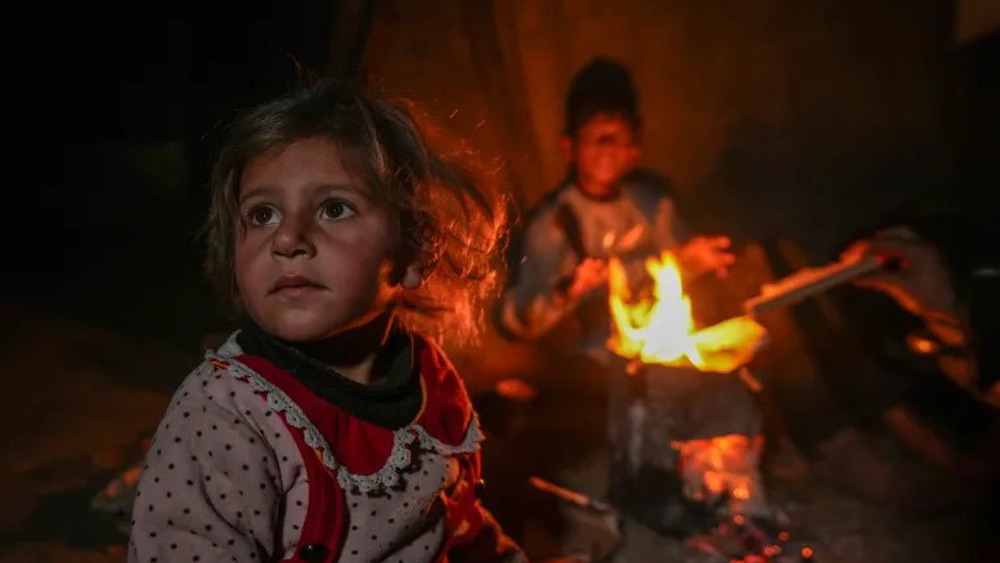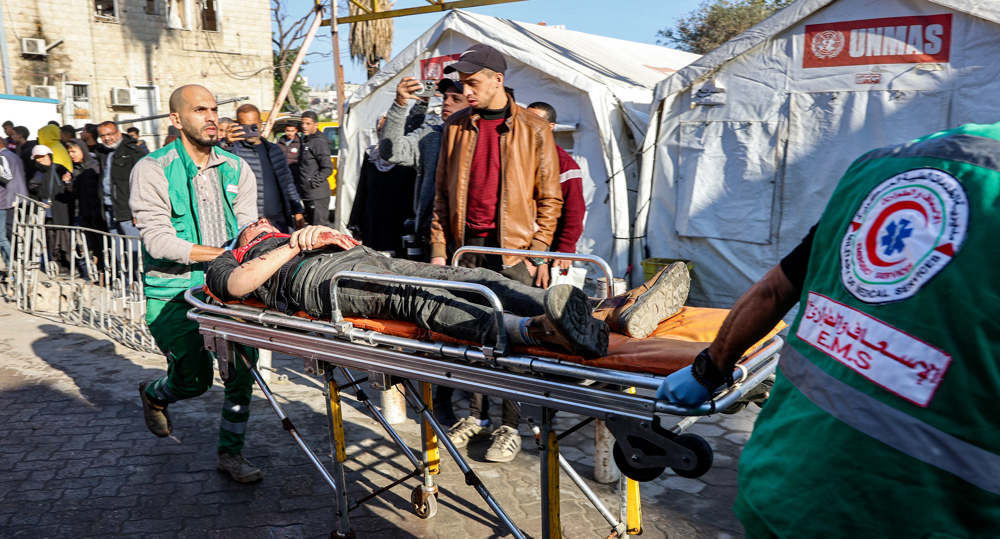Anti-Israel demos will go on until Palestinians’ demands met: Hamas chief
The Palestinian Islamic resistance movement, Hamas, says anti-occupation protests in the Gaza Strip will continue despite the Israeli regime's aggression against the besieged enclave.
Head of Hamas Political Bureau Ismail Haniyeh said on Sunday that demonstrations would go on until the fulfillment of the Palestinian people's demands, including their right to return to their homeland.
He added that Israel’s settlement constructions and forced evacuations would fail to make Palestinians back down.
The senior Hamas leader said the Palestinian people would never change their stance on Jerusalem al-Quds, reiterating that the city and all other occupied territories belong to Palestinians.
Haniyeh's remarks came a day after a United Nations aid agency official said Palestinians in the Gaza Strip "have nothing to lose” as a ceasefire reached between Israel and the Palestinian resistance groups seemed to be holding on Sunday, following Israel's heavy bombardment of the territory and Hamas's retaliatory rocket fire a day earlier.
“There is no tomorrow in Gaza, it’s a big prison, there are no dreams, there is no stability. Two million people, 50 percent unemployment, the private sector doesn’t work,” he said in an interview with Ynet, the online arm of Israeli paper Yedioth Ahronot on Saturday.
Tel Aviv has most recently ratcheted up its attacks against Gaza, taking it under dozens of airstrikes, while claiming that it is responding to rocket fire from the territory.
Also on Saturday, it was reported that the regime and Gaza-based resistance groups had reached a “ceasefire agreement.” Only hours afterwards, however, the regime resumed its attacks again alleging that it had come under renewed rocket strikes.
Still, reports on Sunday suggested that the ceasefire appeared to be holding, allaying concerns about a new war breaking out following the most severe flare-up in Gaza violence since 2014 on Saturday.
At least two Palestinians sustained injuries when Israeli fighter jets launched an airstrike against a residential area in the northern part of the Gaza Strip on Sunday.
Local sources, speaking on condition of anonymity, told Arabic-language Ma’an news agency that the warplanes had attacked a site used for releasing incendiary kites and balloons into occupied territories.
The development came less than a day after Hamas said it had reached a ceasefire with Israel after a wave of Israeli airstrikes on the Gaza Strip, and dozens of rockets fired from the Palestinian enclave in response.
Hamas spokesman Fawzi Barhoum said the Palestinian resistance movement had agreed to an “Egyptian offer to return to a ceasefire to stop this escalation."
Hamas’ deputy chief in Gaza said on May 30 that Palestinian resistance groups have agreed to a ceasefire in the blockaded coastal sliver as long as Israel abides by a truce.
“After the resistance succeeded in confronting the [Israeli] aggression ... there was a lot of mediation in the past hours,” Khalil al-Hayya said.
Read more:
- Israeli airstrikes continue on Gaza despite Palestinians announcing ceasefire
- Gazans hold funeral for Palestinian teen killed by Israeli forces
- Three Palestinians injured as Israeli warplane strikes Gaza-Egypt border
In early July 2014, Israel waged a war on the Gaza Strip. The 50-day military aggression, which ended on August 26, 2014, killed nearly 2,200 Palestinians, including 577 children. Over 11,100 others – including 3,374 children, 2,088 women and 410 elderly people – were also wounded in the war.
The Gaza Strip has been under an Israeli siege since June 2007. The blockade has caused a decline in the standards of living as well as unprecedented levels of unemployment and unrelenting poverty.
Palestinians in Gaza have been rallying every Friday since March 30 as a part of a peaceful campaign known as the Great March of Return. So far, some 140 Palestinians have been killed by Israeli forces in anti-occupation protests in the Gaza Strip.
A total of 14,811 Palestinians have also sustained injuries, of whom 366 are reportedly in a critical condition.
The Gaza clashes reached their peak on May 14, the eve of the 70th anniversary of Nakba Day (Day of Catastrophe), which coincided this year with the US embassy relocation from Tel Aviv to occupied Jerusalem al-Quds.
VIDEO | Yemenis praise the military for its successful operations against Israel
VIDEO | Israel continues to bomb Gaza homes
VIDEO | An insider's view of the country: Meybod City in Yazd
‘All wars have rules. All of those rules have been broken’ by Israel
VIDEO | Report flags India’s violation of rights of Rohingya detainees
Turkey's foreign minister meets Syria's de facto leader in Damascus
VIDEO | US Syria plots
'Next to impossible' to rescue patients from Gaza's Kamal Adwan Hospital: Director












 This makes it easy to access the Press TV website
This makes it easy to access the Press TV website